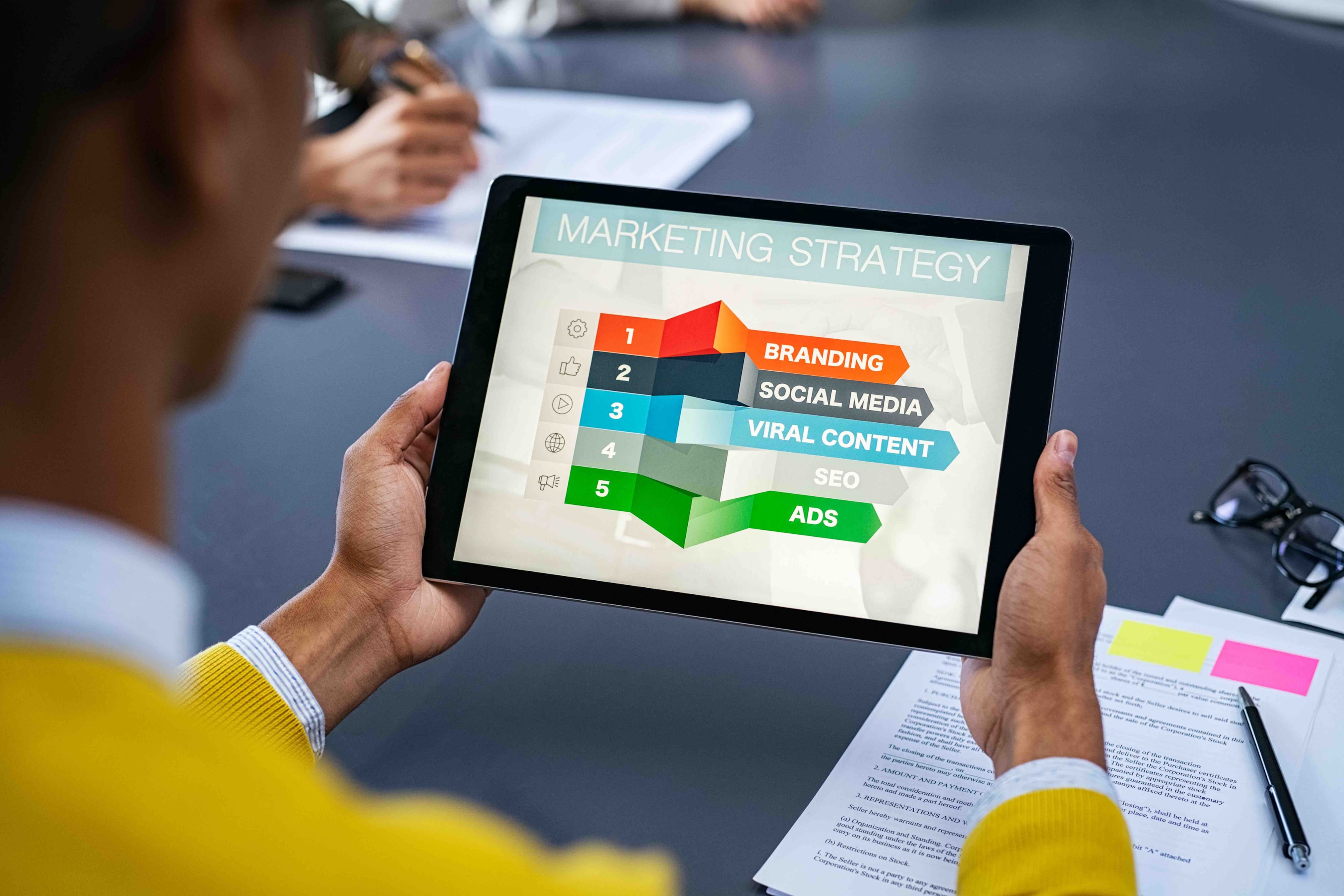Looking for good B2B marketing campaigns to inspire your strategy? This article highlights six successful B2B campaigns, showcasing innovative tactics and offering practical takeaways to boost your own marketing efforts.
6 Good B2B Marketing Campaigns & Key Takeaways
Are you on the lookout for inspiring B2B marketing campaigns to elevate your strategy? This guide highlights six successful B2B campaigns, showcasing innovative methods and providing practical insights to boost your marketing efforts.
Key Takeaways
- Understanding your target audience is crucial for B2B marketing campaigns. A documented strategy and consistent branding effectively engage stakeholders and drive demand.
- Successful B2B campaigns, like those from IBM and Slack, use innovative storytelling, humor, and immersive experiences to foster relationships and improve brand perception.
- Multichannel strategies and data-driven insights are vital for B2B success, offering valuable touchpoints for engaging potential clients and optimizing campaign performance.
Understanding B2B Marketing Campaigns

B2B marketing focuses on promoting products and services from one business to another. Unlike B2C marketing aimed at individual consumers, B2B campaigns target organizations, often involving a lengthy buying process with numerous stakeholders. These campaigns prioritize demand generation and lead acquisition, requiring innovation and clarity in presenting core offerings.
A primary challenge in B2B marketing is building trust and relationships with potential clients rather than just focusing on immediate sales. Effective campaigns engage stakeholders throughout the purchasing journey and align marketing goals with the unique needs and behaviors of customers. A strong digital strategy ensures the right content reaches the right audience at the right time.
Contrary to the belief that B2B marketing is mundane, clever humor and human-centric storytelling can make these campaigns stand out. Emphasizing ROI is crucial, as business customers often prioritize financial outcomes. By incorporating these elements, B2B marketing campaigns can achieve significant impact and drive business growth.
Essential Components of Successful B2B Marketing Campaigns
Creating impactful B2B marketing campaigns requires a focus on core components such as a clear target audience, a documented strategy, and consistent branding. Each element plays a vital role in ensuring marketing efforts resonate with the intended audience and achieve desired results.
Let’s explore each component to understand their significance and contribution to successful B2B marketing campaigns.
Clear Target Audience
The first step in a B2B marketing campaign is understanding the target market. A well-defined target audience is the cornerstone of success, allowing marketers to address specific needs and desires. Consider factors like industry, role requirements, pain points, and emotional drivers when analyzing the target market. This deep understanding helps craft messages that resonate and engage effectively.
Incorporating emotions into B2B interactions can redefine relationships and enhance brand perception. While B2B marketing often emphasizes reliability and long-term value, introducing interactive elements and emotional engagement can forge deeper connections with the audience. This strategic approach fosters ongoing relationships and sets the stage for successful lead generation.
Documented Strategy
A documented strategy is essential for B2B marketing campaign success. It helps maintain focus on objectives and allows for effective progress measurement. It serves as a roadmap guiding marketing efforts, ensuring all actions align with overall goals.
Moreover, a documented strategy facilitates identifying successes and failures, enabling marketers to make informed adjustments and improve future campaigns. Continuous improvement is necessary for staying competitive and achieving significant ROI.
Consistent Branding
Consistent branding is crucial for successful B2B marketing campaigns. The goal is to establish a brand presence that is both consistent and distinctive. This consistency should be maintained across all marketing channels, increasing trust, loyalty, and conversion rates among potential customers. A strong brand identity fosters trust and aids in converting leads into customers.
It’s important to ensure that any new images or branding elements introduced in marketing efforts align with the company’s core values. Aligning branding elements with core values helps maintain credibility and enhances the overall customer journey. While consistency is crucial, it doesn’t equate to monotony; brands should use fresh visuals or new tones as needed for specific themes.
Top Examples of Effective B2B Marketing Campaigns

To truly understand what makes a B2B marketing campaign successful, let’s explore six exemplary campaigns. These campaigns from:
- IBM
- Slack
- Upwork
- Spotify
- HubSpot
showcase innovative strategies and creative approaches that have set new benchmarks in the industry.
Analyzing these campaigns reveals key takeaways that can be applied to your own marketing efforts.
IBM's “Every Second Counts”
IBM’s ‘Every Second Counts’ campaign highlights the importance of cyber resilience. Utilizing immersive video experiences and live simulations, the campaign engages decision-makers, providing a unique and impactful way to convey the critical nature of a cyber attack recovery plan. This approach replaces traditional images with video content, enhancing engagement and understanding.
IBM’s campaign emphasizes the importance of using immersive experiences to create a lasting impression, highlighting the urgency and significance of cyber resilience and encouraging proactive measures against cyber attacks.
Slack’s “So Yeah, We Tried Slack”
Slack’s ‘So Yeah, We Tried Slack’ campaign is a mockumentary-style advertisement featuring real customer testimonials. The campaign humorously presents Slack’s benefits over other communication methods, balancing entertainment with information. This approach keeps content engaging while conveying valuable product insights.
Slack’s campaign demonstrates that humor enhances persuasion and improves the overall brand experience, making the campaign memorable and effectively communicating the product’s value to potential customers.
LinkedIn’s “In It Together”
LinkedIn’s ‘In It Together’ campaign aimed to challenge intimidating perceptions and welcome more users to the platform. By showcasing diverse success stories, the campaign celebrated achievements from various backgrounds, making LinkedIn feel more inclusive and approachable.
This social media campaign effectively humanized the brand and attracted a broader audience.
Upwork’s “Hey World”
Upwork’s ‘Hey World’ campaign connects freelancers with potential clients through striking visual style and bold messaging. Short animated videos and billboards capture attention and communicate Upwork’s value proposition effectively. Using bold visuals and a catchy song helps the campaign resonate with the target audience.
Spotify’s “Wrapped for Advertisers”
Spotify’s ‘Wrapped for Advertisers’ campaign provides user analytics and insights into musical preferences, invaluable for understanding target audiences. Offering unprecedented insights, Spotify helps advertisers craft effective marketing strategies that resonate with their audience.
Running since 2015, this campaign has proven a valuable tool for advertisers, providing data needed to tailor messages and improve engagement. It demonstrates the power of data-driven marketing and how user insights can significantly enhance campaign effectiveness.
HubSpot’s “Make My Persona”
HubSpot’s ‘Make My Persona’ campaign focuses on creating personalized buyer personas to enhance lead generation. By allowing potential customers to experience the tool interactively, HubSpot made the campaign engaging and informative. This interactivity builds trust and creates a memorable experience, leading to better conversion rates.
Personalization and interactivity in HubSpot’s campaign effectively attracted new leads and fostered customer engagement, showcasing the importance of these elements in B2B marketing.
Leveraging Social Media in B2B Marketing

Social media marketing is crucial in modern B2B marketing strategies. B2B decision-makers often trust what they see on social networks, making social media a powerful tool for influencing purchase decisions.
Let’s explore how to leverage social media channels effectively, the importance of engaging content formats, and the benefits of user-generated content in B2B marketing.
Effective Use of Social Media Channels
Each social media platform offers distinct advantages for B2B businesses to connect with their target audiences. Selecting the right platforms is crucial, as it directly affects engagement and lead conversion. A strategic platform selection optimizes marketing efforts and campaign effectiveness.
Using suitable platforms enhances engagement and improves lead conversion, ensuring marketing messages reach the right audience at the right time.
Engaging Content Formats
Utilizing a variety of content formats in B2B marketing campaigns engages audiences effectively across different preferences. Formats include detailed blogs, inspiring videos, short videos, case studies, and social media posts. Visual storytelling, in particular, enhances audience engagement and curiosity.
B2B marketers often use detailed, technical content to address specific needs and challenges. Using both short and long content formats caters to diverse audience preferences, keeping the audience engaged and providing valuable content that resonates.
User-Generated Content
User-generated content significantly enhances brand trust and fosters a sense of community among target audiences. Engaging through user-generated content demonstrates transparency and builds relationships with customers, influencing brand perception and loyalty positively.
Incorporating user-generated content into B2B strategies helps brands connect authentically with their audiences, adding a human element to marketing efforts, making the brand relatable and trustworthy.
Integrating Multichannel Marketing Strategies

Using multiple marketing channels enhances B2B marketing efforts by delivering messages to a wider audience. Multichannel strategies foster deeper engagement, allowing businesses to interact with their audience through various platforms, despite challenges posed by fragmented marketing assets.
Let’s explore the benefits of email marketing, live events, and data and analytics in a multichannel marketing strategy.
Email Marketing
Effective email marketing fosters brand trust by building connections with a wide audience. Attention-grabbing subject lines accurately reflect the email’s content and entice recipients to open it. Personalized email campaigns improve click-through rates by an average of 14%, showcasing the effectiveness of tailored communications.
Email interactions can significantly impact overall success, with some achieving a 20% conversion rate. Leveraging personalized and engaging email content enhances lead generation and drives better results in B2B campaigns.
Live Events
Live events enhance lead generation, attract customers, and build affinity among target accounts. Well-planned digital events can significantly increase ROI on B2B campaigns. Expert-led digital events are projected to be a valuable content source in B2B campaigns for 2024.
Digital events play a key role in successful digital marketing B2B campaigns, aiding in lead generation and customer attraction. Engaging and interactive elements create memorable experiences, driving deeper connections and engagement.
Data and Analytics
Deep event analytics are necessary to measure B2B marketing campaign success. Analytics are crucial for continuous improvement, offering a clear way to track and measure key accounts through the pipeline.
A well-organized reporting system provides an overview of campaign performance and identifies profitable opportunities. Analyzing marketing campaigns reveals what works and needs improvement, making analytics a crucial factor for enhancing B2B marketing performance.
Key Takeaways from Successful B2B Marketing Campaigns

Lessons from exemplary campaigns, including diverse content and personalized approaches, enhance audience engagement. Diversifying relevant content engages a broader audience effectively, allowing for easy communication of services without extensive explanations.
Visuals can ignite curiosity and enhance engagement in B2B marketing campaigns. Building trust through visual storytelling helps create a sense of community. The impact of branded hashtags can increase sharing and visibility of a brand’s message.
Attracting new leads often results from creative and engaging marketing campaigns. Focusing on emotional messages enhances B2B marketers’ ability to connect with their audience. Utilizing multiple contact points ensures effective targeting and memorable connections with clients.
Relatable stories humanize brand content and foster a stronger connection with the audience.
Summary
In conclusion, successful B2B marketing campaigns are built on a foundation of clear target audiences, documented strategies, and consistent branding. By incorporating diverse content formats, leveraging social media, and using multichannel marketing strategies, businesses can engage audiences more effectively and drive better results.
The key takeaways from the analyzed campaigns highlight the importance of creativity, emotional engagement, and data-driven decision-making. Applying these insights can enhance marketing efforts, drive lead generation, and achieve significant ROI. Embrace the potential of effective B2B marketing campaigns and watch your business thrive.
Frequently Asked Questions
What is the main goal of B2B marketing campaigns?
The primary goal of B2B marketing campaigns is to drive demand and generate leads that can be converted into sales, helping businesses grow and strengthen their market position.
Why is a documented strategy important in B2B marketing?
A documented strategy is crucial as it ensures focus on objectives, enables effective progress measurement, and supports continual improvement in campaigns, driving better results and fostering informed decision-making.
How can user-generated content benefit B2B marketing campaigns?
User-generated content boosts brand trust and fosters community engagement, allowing B2B companies to connect authentically with their audience, enhancing marketing campaigns and driving stronger relationships.
What are some effective content formats for engaging B2B audiences?
Effective formats for engaging B2B audiences include detailed blogs, case studies, and engaging videos, which convey information and connect with the audience.
How do multichannel marketing strategies enhance B2B marketing efforts?
Multichannel marketing strategies enhance B2B marketing efforts by broadening reach, deepening engagement, and maintaining consistent branding across diverse platforms, ultimately driving improved outcomes.
.svg)

.jpg)

